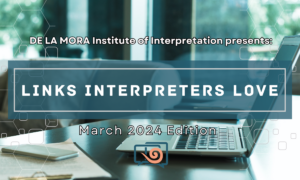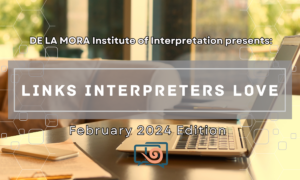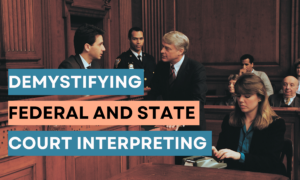Dear colleagues:
In the immortal words of Bob Marley, I would like to propose: “let’s get together and feel alright”.
I am proud to be a certified court interpreter in the State of Florida. And I am especially proud because I am aware of the difficult path that we had to follow in this state to get certification to become a reality. Proud because I know it was a lot of effort, not to mention expensive, to become certified. Florida certified court Interpreters must successfully complete and pay for: a two day orientation seminar, a written exam and then a rigorous oral exam. Finally, after jumping over all these hurdles, we still have to undergo a background check before getting our official certification (we even get a cool ID card). After we become certified, we must obtain continuing education credits in order to maintain our certification which has to be renewed every two years. Don’t get me wrong, I am also proud about the fact that my state has such a well-defined path to become a professional interpreter in our courts. We certainly need everyone to understand that being a court interpreter requires more than being “fluent” in another language. Ours is a professional endeavor that needs to be carried out by trained, credentialed interpreters who know and adhere by our code of professional responsibility. That is not the issue here, my problem is with our present situation as court interpreters, let me explain:
In my state, we hear reports of different circuits hiring interpreters at different hourly rates. We know of circuits that do not hire state certified interpreters as free-lancers because they claim to have a more accurate way to determine if an interpreter is well suited to work in that circuit as a court interpreter, state certification notwithstanding. We also hear there are other circuits where certified interpreters are not getting hired because the non-certified interpreters agree to work for less pay or even to work long complicated trials by themselves instead of working in teams as the best practices for our profession suggest. There is clear disparity between hiring practices among the 20 circuits in Florida and, because ours is a non-unified court state system, it is my understanding that the Office of the State Court Administrator and even the Supreme Court of Florida can only suggest best practices for the courts to deal with interpreting issues, but have no ”teeth” to enforce any of their suggestions. This is evidenced in the following quote from our rules:
Rule 14.205. Certified Court Interpreter Designation (a) Preferred Appointment. The certified court interpreter designation represents the highest qualified state-level interpreter designation and shall be the preferred designation when selecting court-appointed interpreters, arranging for contractual interpreter services, and making staff hiring decisions.
You can read the complete rules at: http://www.flcourts.org/core/fileparse.php/419/urlt/formatted-interpreter-rules-May-1.pdf
I am not an attorney, but it seems to me that no Florida Court Circuit should be hiring non-certified interpreters over certified ones based on price or willingness to work under inappropriate conditions.
I want to reiterate that the Florida Court Interpreter Certification Board has established a model of legitimacy and effective evaluation for interpreters in our state. I think their work is beyond reproach. They have done a lot ensure that interpreters are treated as professionals and with respect. (And, full disclosure, I used to be a member of the Board)
My concern is that if the various circuits don’t make proper use of this system, it waters down the accomplishments of the board and, just as importantly, makes some interpreters feel like fulfilling all of the requirements to be certified is “a waste”, because other interpreters are working without having to do any of it.
Let me be clear. I did not write this to single anyone out. I wrote this because I truly believe we are stronger together, and that if the interpreters in this state work together to uphold a coherent set of principles and regulations, the outcome will always be to assure meaningful access to justice for all of those Non-English Speakers and Limited English Proficiency persons living or visiting our state and our country as well as the livelihoods and professional experiences of interpreters in the sunshine state and beyond.
Let’s work together to make every interpreter feel welcome in the courtroom, respected as a professional, and fairly paid for their hard work.
So dear colleagues, yes I am talking to you Florida Court Interpreters: Certified, Language Skilled, Provisionally Approved or Duly Qualified. I’m asking you to get together and create a voice for our profession. Join our professional associations like NAJIT and ATIF. Let all of our effort not go to waste and help our courts provide true language access to our justice system which is, after all, our common goal. Isn’t it?
To this end I am inviting you all to attend our summit on September 15 to the 17 in Orlando and attend the open-admission panel we are planning for Friday. For information visit
https://dlminstitute.wpengine.com/certified-interpreter-summit/












Leave a Reply